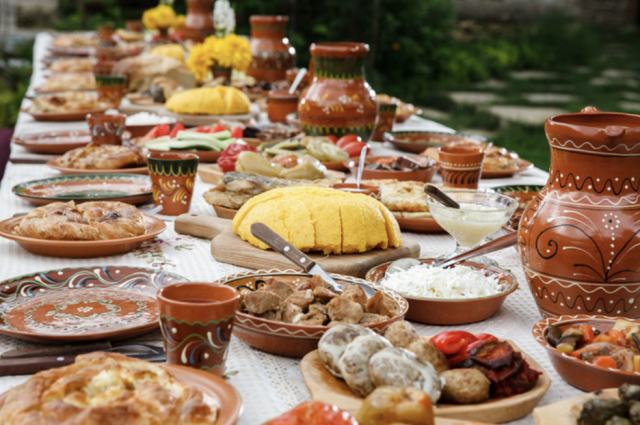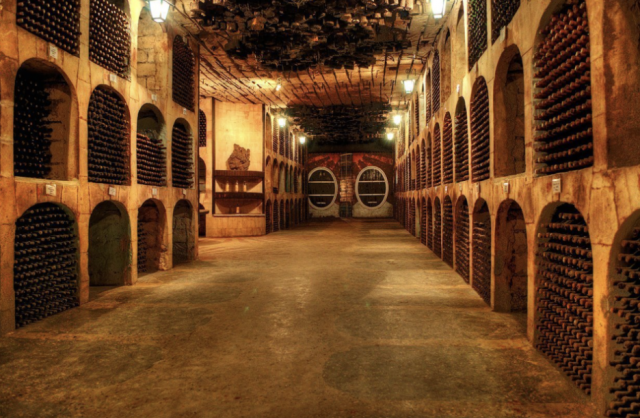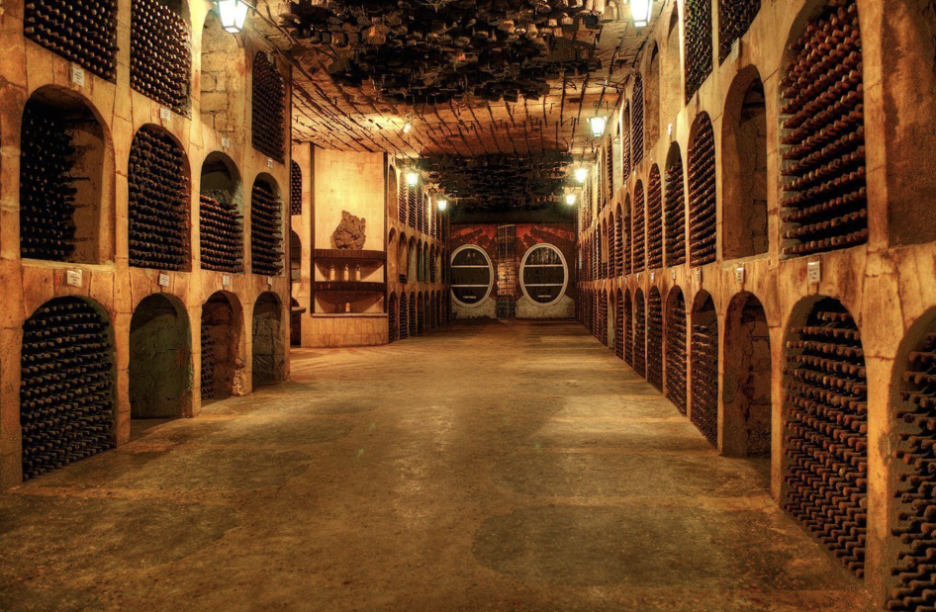When you think of world-famous wine countries, you might picture France, Italy, or Argentina. But tucked away in Eastern Europe, Moldova beats with a heart of wine. Rolling hills and fertile soils shape one of the world’s most soulful wine cultures.

For Moldovans, wine is life itself. Almost every family tends a vineyard or a few rows of vines, passed down through generations. They share homemade wine at weddings, festivals, and family tables, always alongside traditional dishes cherished for centuries. Wine here isn’t about prestige—it’s about connection, hospitality, and identity. Walk into a Moldovan home, and your hosts will welcome you with a glass poured with warmth and pride.
The scale of Moldova’s devotion astonishes visitors. The country holds the largest wine cellar in the world: Mileștii Mici. Stretching more than 120 miles underground, it stores nearly two million bottles—a subterranean city of history and craftsmanship. Walking through its tunnels feels like stepping back in time, a reminder of how deeply wine flows through Moldovan veins.

Cricova, another legendary cellar, boasts a sprawling underground “wine city” with streets named after grape varieties. Winemakers age fine sparkling wines there, including bottles once owned by Winston Churchill.
But beyond numbers and records lies something more profound: wine as culture. In Moldova, harvest time turns into a celebration. Entire communities gather to pick grapes, sing, and press fruit by hand. Festivals fill the air with music, dancing, and laughter. Visitors soon realize that Moldovan wine is not just for tasting—it’s for living.
Moldova is a small country with a vast, turbulent history. Larger empires—Ottoman, Russian, and Soviet—left heavy marks on the land. Each era brought upheaval, yet Moldovans clung tightly to their vineyards.
-
Ottoman Rule (1500s–1800s): The empire banned winemaking, but locals quietly kept the tradition alive at home, passing down knowledge in secret.
-
Tsarist Russia & the Soviet Union: Authorities turned Moldova into a vineyard for export. Millions of bottles left the country, while families still nurtured their own vines to protect local traditions.
-
Post-Soviet Era: After independence in 1991, trade embargoes devastated the industry. Instead of collapsing, wineries reinvented themselves, turned toward Europe, and reclaimed pride in their unique grapes and heritage.
Because of this history, every glass of Moldovan wine carries more than flavor—it carries stories of survival and identity. Families made wine through wars and hardships because it tied them to their land, ancestors, and hope for the future.
At Tierra Luna Cellars, we celebrate these stories. They remind us why we first fell in love with wine. For us, it’s not only about vineyards or vintages. It’s about spirit, roots, and resilience. In the end, we aren’t so different from people thousands of miles away. Their culture may seem foreign at first—but perhaps it’s not so foreign after all.


